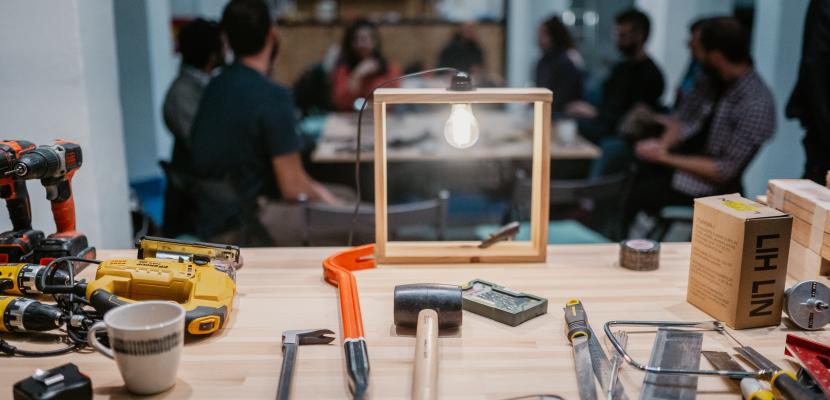
The Library of Things & Repair Café

About this good practice
The Library of Things (LoT) and Repair Café (RC) directly address the challenges of urban waste, overconsumption and the right to repair. Many urban residents lack access to affordable repair options, essential tools and skills needed to maintain or repair their belongings, leading to increased waste and financial strain.Recognizing this,Kyklos the Circularity Lab of incommon, introduced the LoT and RC to empower community members to adopt circular economy practices, encouraging the reuse of resources and enhance the availability of shared goods.
The LoT operates within the space of Kyklos as a public lending library for tools, where community members can borrow items to repair household possessions (devices, furniture, etc) rather than buying new. This setup promotes accessibility and affordability in repair, fostering community empowerment around resourcefulness and at the same time engaging community members in a unique way, as it provides users the opportunity to interact through the materials they borrow. The RC complements this by hosting hands-on workshops led by skilled local artisans who guide participants in repairing items themselves, supporting the right to repair and enhancing skills for a sustainable lifestyle.
The main stakeholders and beneficiaries include local residents, who gain access to cost-saving resources and skill development, skilled artisans who support the RC,educators and students, where RC workshops encourage early environmental stewardship.
Resources needed
The establishment and first year of operation of the project were made possible through a grant of 10,000€ provided by the "Ernest Solvay Fund" managed by the King Baudouin Foundation. The project continues to operate as part of the broader "Kyklos", supported by the Endeavor Foundation Inc. funding
Evidence of success
The Lot and RC practice is considered successful due to several key outcomes.The number of RC implemented (19 since 2023), the participation (207participants) the tool lending impact (206 available tools with 128 loans and 63 LoT members) and the collaborations with local artisans(3,with 1 permanent).A successful pilot educational engagement (11 students and 1 teacher) and many noteworthy success stories,demonstrating the project's role in supporting intergenerational community connections.
Potential for learning or transfer
The LoT and RC are highly transferable and beneficial as both rely on active community engagement and collaboration, strengthening local resilience and fostering shared ownership of resources, ensuring strong community buy-in. RC’s teach practical repair skills and environmental awareness, which promote sustainability and self-reliance, creating lasting community impact. LoT and RCs also reduce waste and minimize the need for new purchases, easing economic strain.A successful transfer example is the collaboration with the Environmental Education Centre of Eleftherio Kordelio & Vertiskos, where teachers were introduced to LoT and participated in a RC, inspiring them to integrate repair activities into schools, fostering a repair culture among students. This demonstrates how the practice can adapt to educational environments, showing potential for similar transfers elsewhere. Challenges for transfer may include varying public interest and access to skilled artisans.
Further information
Images
Website
Good practice owner
You can contact the good practice owner below for more detailed information.


